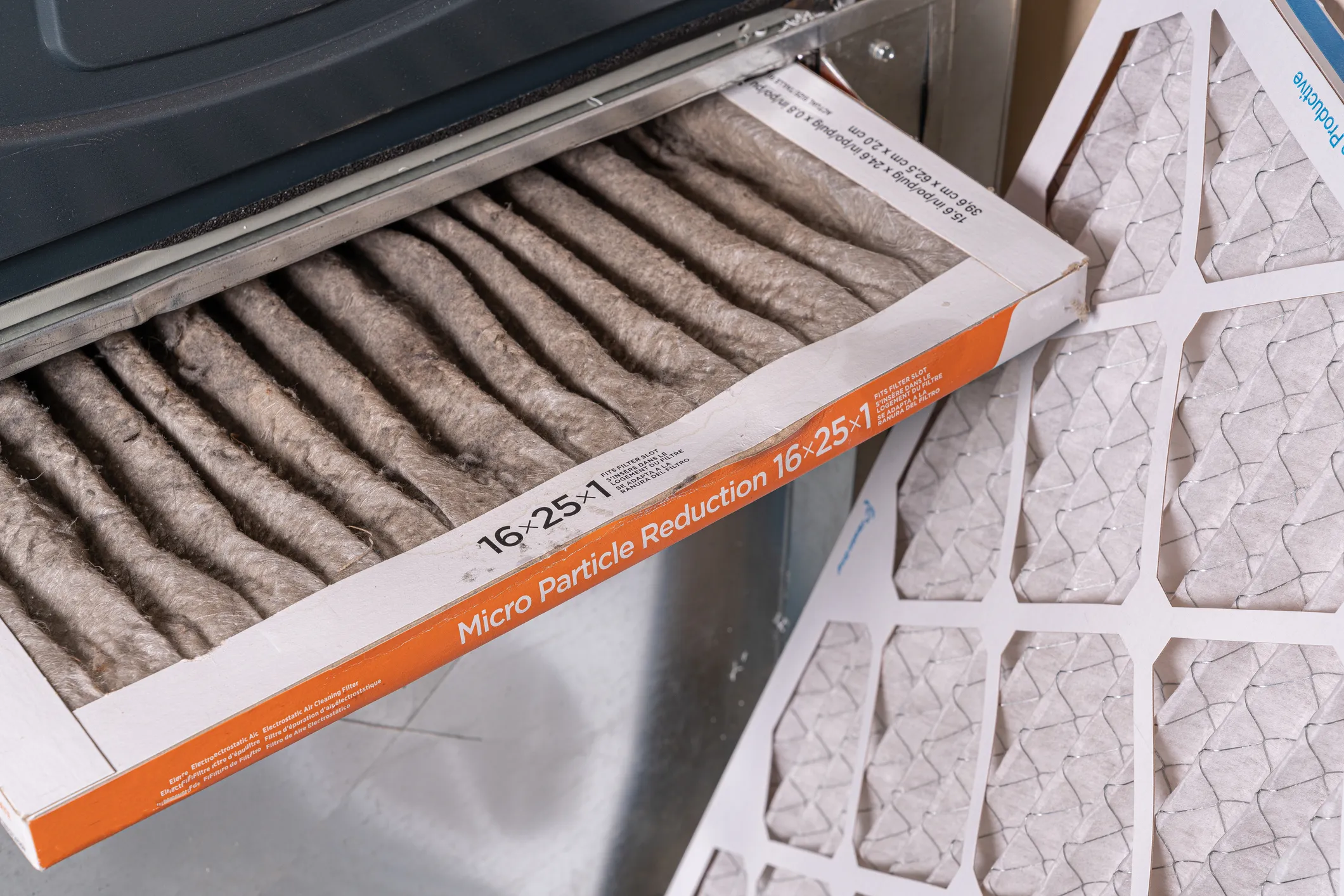Picking the Ideal Air Filter for Your HVAC System
Maintaining clean, pure indoor air is a top priority for comfort-minded homeowners and using the right HVAC air filter plays a significant part in providing it. Use this guide to find the perfect filter type, dimensions and overall filtration efficiency rating for your home’s indoor air quality needs.
What Is the Best Time to Change Your Air Filter?
The first thing to to think about is when to replace the filter. The general recommendation for standard residential filters is to replace them every 90 days for the typical home without pets. If you have a furry friend, increase this to every other month. For homes with multiple pets or family members with allergies, change the filter as often as every 30 days.
Selecting the Right Air Filter Size
Not all home comfort systems are the same, so manufacturers make air filters to fit multiple kinds of filter slots. Only using the correct size ensures a snug fit without allowing air to bypass the filter. Here are a few tips to identify the right filter size:
- Look at the filter already in place for a label listing the dimensions.
- Compare this with the filter slot. Measure the height, width and depth for a perfect fit without forcing the filter into the opening.
- Look in the HVAC manual, which should mention the filter size and type advised for your system.
Kinds of HVAC Air Filters
Various filter materials and designs are available, and each is suited for different needs. Here are some popular types:
- Fiberglass filters are the most straightforward and cost-effective option. Made from layered fiberglass strands, they help trap larger particles that could settle on the equipment. However, they don’t filter small particles that can be an issue for people with respiratory problems, so don’t count on them to deliver industrial-grade indoor air quality.
- Pleated filters fabricated with light polyester or cotton folds offer a greater surface area to trap finer particles.
- Electrostatic filters use self-charging fibers to capture and hold airborne particles. They come in both single-use and reuseable forms.
- HEPA filters offer exceptional filtration. However, because they drastically restrict airflow, they are usually installed in medical facilities, clean rooms and other commercial properties. If you prefer a HEPA filter in your residential HVAC system, work with a heating and cooling technician to determine compatibility.
The MERV Rating System for Air Filters
Minimum efficiency reporting value, or MERV, is the scale used to evaluate air filter efficiency. Ratings can be anywhere from 1 to 20, with higher numbers signifying a filter’s ability to collect increasingly finer particles.
- MERV 1-4 represent the simplest of filters, helping trap large particles including allergens, pollen, lint and carpet fibers. They provide basic filtration but are a solid and economical choice for simple applications without pets or allergies.
- MERV 5-8 are better suited for homes and commercial buildings where pet dander, mold spores, pollen and dusting aids need control. They strike a balance between cost and filtration equally, making them a popular choice among homeowners.
- MERV 9-12 apply to filters that can help with legionella, humidifier dust, auto emissions and more. They provide superior air quality to help relieve allergies or mild asthma symptoms.
- MERV 13-16 are considered the highest-end filters for residential use. They’re found in hospitals and similar commercial properties where clean air is necessary. These designs trap bacteria, tobacco smoke and even certain virus particles.
- MERV 17-20 are reserved for HEPA filters, which trap roughly 99.97% of particles down to 0.3 microns in size, including lead dust, humidifier dust, asbestos fibers and other microscopic particles.
How to Make Your Selection
When figuring out which type is the ideal home air filter, consider these factors:
- Household needs: Those with pets, people with allergies or asthma, and homes in areas with high dust or pollution may be better from using a filter with a greater MERV rating.
- System compatibility: Before you upgrade to a filter with MERV 12, make sure your HVAC system can handle it without hampering airflow.
- Filter thickness: Thicker filters, ranging from 4 to 5 inches, tend to last you longer and offer stronger filtration than standard 1-inch filters. Verify your system is compatible.
- Cost vs. benefits: High-end filters cost more up front but need less frequent changing and provide healthier indoor air quality. Calculate the potential long-term savings and health benefits before you decide.
- HVAC professional’s advice: The best way to make an informed decision is to speak with an HVAC technician who will provide reliable advice based on your home’s system and air quality goals.
Breathe Your Best with Enercare McKinley
If you’re looking for a better air filter, let Enercare McKinley help you make the perfect selection. We install various air filtration systems to protect your HVAC equipment and alleviate asthma and allergy symptoms. We take pride in enhancing your life and comfort with help from our tailored, professional services. For assistance with selecting the right air filter or other HVAC needs, please contact Enercare McKinley today.



